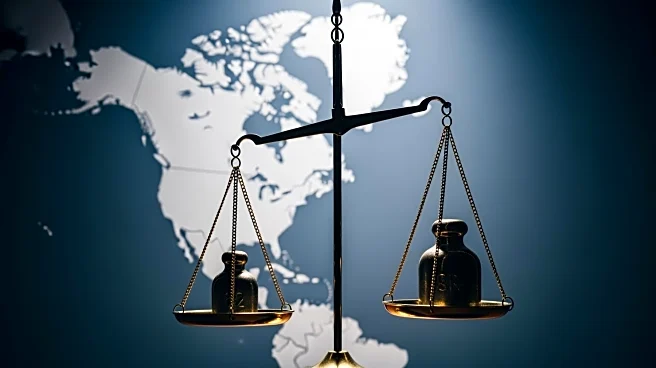What's Happening?
President Trump announced a 10% increase in tariffs on Canadian goods, escalating trade tensions between the U.S. and Canada. This decision comes shortly after the termination of trade talks with Ottawa, which President Trump attributed to a misleading
advertisement by Canada. The tariff increase is intended to apply to all Canadian imports, adding to existing tariffs. This move marks a significant shift in U.S.-Canada trade relations, which have been strained by previous tariff disputes and negotiations over trade agreements.
Why It's Important?
The tariff increase could have substantial implications for both U.S. and Canadian economies. For U.S. industries reliant on Canadian imports, the increased tariffs may lead to higher costs and potential disruptions in supply chains. Canadian exporters may face decreased competitiveness in the U.S. market, potentially impacting their sales and profitability. This development could also influence broader trade negotiations and economic policies between the two countries, affecting sectors such as agriculture, manufacturing, and consumer goods.
What's Next?
The tariff increase may prompt Canada to seek alternative markets or retaliate with tariffs on U.S. goods, potentially leading to a trade war. Stakeholders, including businesses and trade associations, are likely to lobby for negotiations to resolve the dispute. The U.S. government may face pressure from domestic industries affected by the tariffs to reconsider or negotiate terms. Future diplomatic engagements between the U.S. and Canada will be crucial in determining the long-term impact of this decision.
Beyond the Headlines
The tariff increase raises questions about the future of international trade agreements and the role of tariffs in global economic policy. It highlights the complexities of trade negotiations and the potential for political factors to influence economic decisions. The move may also affect public perception of trade policies and international relations, with potential implications for upcoming elections and policy debates.


















